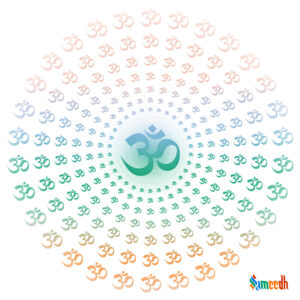In Hinduism, Darshanas are schools of philosophy that provide systematic explanations of the nature of reality, the self, and the ultimate truth. There are six classical Darshanas, and each offers a distinct perspective on metaphysics, epistemology, and ethics.

The Darshanas are often considered as complementary rather than conflicting, and together they provide a comprehensive understanding of the Hindu philosophical tradition. Here are the six classical Darshanas:
- Nyaya Darshana: Attributed to the sage Gautama, Nyaya is a logical and analytical school of thought. It emphasizes the importance of valid reasoning (nyaya) and provides a systematic approach to logic, epistemology, and the analysis of categories.
- Vaisheshika Darshana: Attributed to the sage Kanada, Vaisheshika is a school of atomism and metaphysics. It explores the nature of reality through the analysis of various substances and their attributes. Vaisheshika is often associated with the Nyaya school, and together they form a combined system of logic and metaphysics.
- Sankhya Darshana: Attributed to the sage Kapila, Sankhya is a dualistic philosophy that distinguishes between the eternal and unchanging Purusha (consciousness) and the material world of Prakriti (nature). Sankhya provides a detailed analysis of the components of the material world and the process of liberation (moksha).
- Yoga Darshana: Attributed to the sage Patanjali, Yoga is a practical and experiential philosophy that aims at achieving spiritual liberation through disciplined practices. The Yoga Sutras of Patanjali outline the path of Ashtanga Yoga, which includes ethical principles, physical postures, breath control, and meditation.
- Mimamsa Darshana: There are two branches of Mimamsa – Purva Mimamsa and Uttara Mimamsa. Purva Mimamsa, attributed to the sage Jaimini, primarily focuses on the interpretation of Vedic rituals and the importance of dharma. Uttara Mimamsa, also known as Vedanta, interprets the end portions of the Vedas and explores the nature of the ultimate reality (Brahman).
- Vedanta Darshana: Vedanta is often considered a continuation of Uttara Mimamsa. It is a broad term that encompasses various sub-schools, including Advaita (non-dualism), Vishishtadvaita (qualified non-dualism), and Dvaita (dualism). Vedanta philosophies, in general, explore the nature of Brahman, the relationship between Brahman and the individual soul (Atman), and the means of achieving liberation.
Each Darshana contributes to the rich tapestry of Hindu philosophy, addressing different aspects of life, knowledge, and spirituality. While they may have unique perspectives, they are united in their pursuit of understanding the ultimate truth.